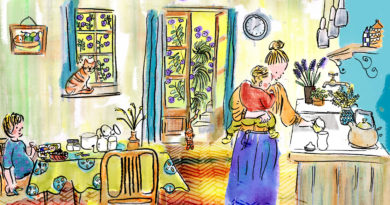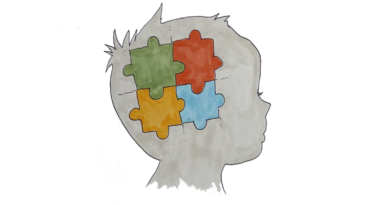Baby Blues and Postpartum Depression
The arrival of a new baby is expected to bring great joy. What if, though, this long-awaited moment is met not with elation but rather with anxiety and sadness?
Many new mothers are affected by some degree of depression following childbirth. The time immediately postpartum is not easy: the new mother is still exhausted from the physical exertion of the birth, her hormone system is in a state of upheaval, her body is rapidly shedding excess fluids accumulated during the pregnancy in any way possible, and she will be affected to a stronger or lesser degree by the emotional ups and downs associated with any major change in life. For most women, these “baby blues” last only a short time as the women recover from the birth, bond with their babies, and adjust themselves to the new demands of mothering. Some women, however, find themselves enveloped in the unrelenting sadness of postpartum depression.
Symptoms of postpartum depression include feelings of sadness, helplessness, and inadequacy; anxiety; headache; mood swings; insomnia; loss of appetite; general lack of interest in life; and a fear of hurting the baby or worry over an inability to care for the baby. Sometimes it is immediate family members or close friends who recognize these symptoms before the mother acknowledges to herself that what she is feeling is not simply a bit of baby blues but rather a farther-reaching problem. Research shows that women who are struggling with depression have difficulties being good mothers to their children. A baby needs a responsive caregiver to develop properly; thus, it is important to treat postpartum depression promptly, and yet many mothers who are depressed are hesitant to seek treatment. Family members can best help the mother by looking for help early on and by involving themselves actively in the mother’s treatment and in caring for the baby and the household.
Treatment options for postpartum depression depend upon the individual and the severity of the depression.
Self-Help: In some cases, self-help strategies may be enough to alleviate the depression. These include enlisting household help (close friends, family members, or paid help); getting some physical exercise and fresh air every day (take a walk with the baby); eating and drinking regularly and well; getting rest when baby rests, even if this means taking the phone off the hook and taping a note to the front door; and getting together regularly to talk with like-minded mothers, especially those who have been through postpartum depression themselves. An LLL (La Leche League- a breastfeeding support group, see below) meeting might be a good place to meet other mothers and to vent some of the fears and concerns.
Talk therapy: In many cases, “cognitive behavioural therapy,” where a trained counsellor helps a mother to replace the false messages she gives to herself (“I am a horrible mother”) with a more objective truth, can be very effective. One of the greatest advantages of cognitive behavioural therapy is that it teaches the mother to think about herself and her surroundings in a different way, thus promising long-lasting results.
Medication: Medication can provide relief from symptoms of depression in a very short time, but these results may be short-lived, lasting only over the course of the medication. If medication is recommended and the mother is breastfeeding, she should discuss with her doctor the question of breastfeeding compatibility.
A good therapist should be willing to consider the family’s specific needs and to value the mother’s breastfeeding relationship with her baby. In many situations, it is possible for a mother to continue to breastfeed while being treated for postpartum depression.
Mothers who value breastfeeding should discuss the matter with family, friends, and counsellors. When people surrounding a mother understand the importance of breastfeeding to her, they will be less apt to suggest weaning as a first recourse and will be prepared to advocate for the breastfeeding mother and baby in the event of a crisis.
Weaning, though often recommended, poses several potential risks for both mother and baby that may outweigh any of the expected benefits. Threats to the mother include engorgement and/or mastitis, effects from abrupt hormonal shifts (mood swings and exacerbation of the mother’s depression – a mother’s mood is positively affected by the oxytocin released into her blood whenever she nurses the baby; sudden weaning deprives a depressed mother of this mood-boosting hormone), additional burdens of baby care in the long-term (cleaning and preparing bottles and other feeding paraphernalia), and disruption in bonding (depressed mothers are less apt to play with their babies and for some babies, breastfeeding might be the only physical contact they have with their mothers). Threats to the child include a reduced immune system and attachment trauma.
One of the immediate issues in situations where a mother has a depressive illness is whether she is able to care for herself, her baby, and any other children in the family. If the mother is deemed able to care for the baby on her own, then breastfeeding can make her task much easier. If she needs assistance, helpers can take over household responsibilities and/or care for older children so as to let the mother concentrate what energy she has on the baby. A woman with a severe mood disorder may need friends and family to take turns being with her and the baby, thus allowing continuing attachment between the mother and baby while at the same time ensuring the safety of both. In the event of an unavoidable hospitalization, the family must ensure that the baby is brought to the mother regularly, and should arrange for a breast pump and assistance with using it. It is crucial for loved ones to advocate for the mother if she has trouble standing up for herself.
Fortunately, postpartum depression does not carry the stigma that it has in the past, and effective treatment that does not compromise a mother’s attachment to her breastfed baby is normally available. When a mother works together with her partner, friends, family members and counsellors, solutions can be found that enable her to continue with breastfeeding while she is recovering from her depression. Both she and her baby will benefit.
By Beth Brupbacher
Beth is an LLL leader who runs meetings in Zurich Oerlikon (check the webpage for schedule details). All mothers are welcome to LLL meetings, whether they need help and/or support or are just looking to meet with other like-minded mothers for some informal conversation.
Illustration by Sharanya Mageshwaran
Sharanya Mageshwaran is a stay-at-home mom of a very naughty three-year-old who speaks better German than her mother does. Before moving to Zurich, Sharanya was a pharmaceutical research scientist in India. She loves painting and sketching with fauvist expressionist abstract themes. More of her artwork can be see here: http://somelightandcolor.blogspot.ch/




